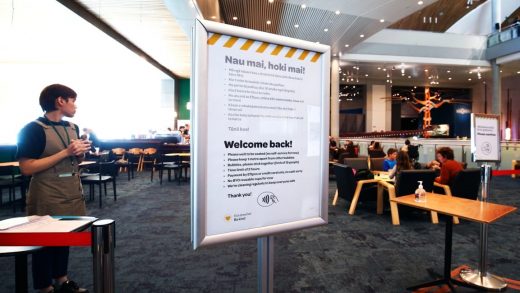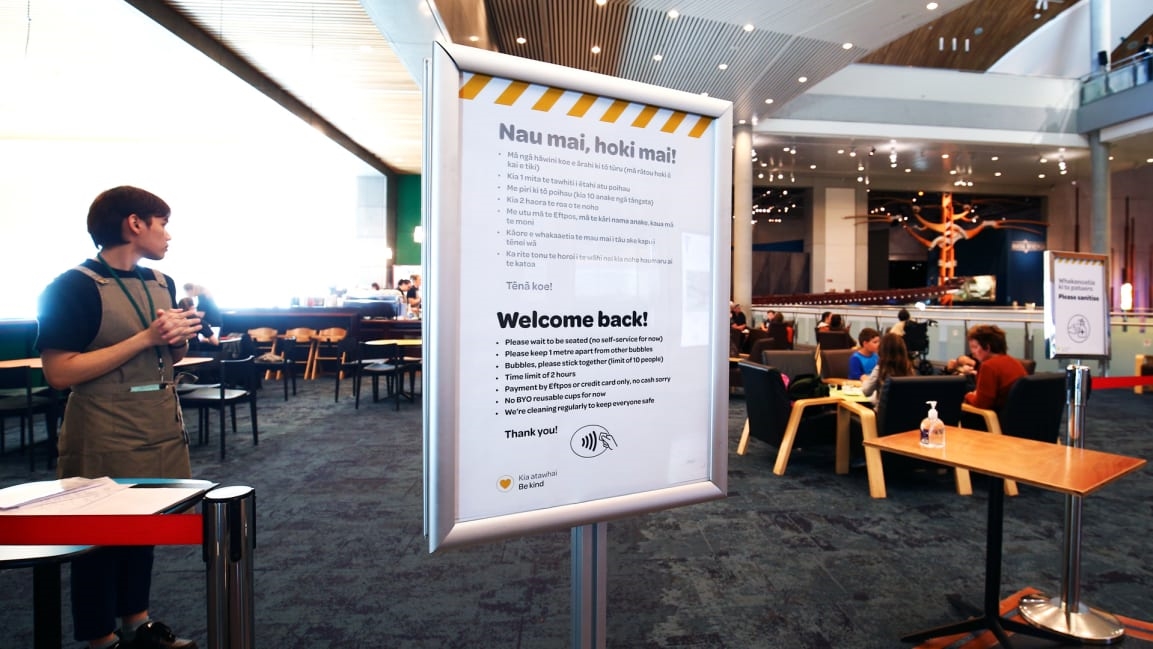New Zealand masterfully contained the coronavirus. Here’s what the U.S. can learn from the country’s response
I was born and raised in New Zealand. In 2018, I launched a New Zealand-based tech startup that provides ?software to photographers? around the world. We’ve grown to employ talent from companies like Uber and Google, and recently launched a new AI product, which has continued to take root, even amid the emergence of COVID-19 and resultant global health and economic crisis. None of this is a coincidence.
The swift response of our prime minister, Jacinda Ardern, in locking down borders and providing instant economic support to small businesses have been key contributors to the management of the pandemic. Five days before our country went into complete lockdown due to the coronavirus, I filled out a seven-question form, and within three days, the government deposited $38,000 USD into the company bank account to help us weather the storm ahead.
At the same time in the U.S., lives and businesses were tragically lost. Dense, crowded cities struggled to contain the spread of the virus and find enough personal protection equipment to support essential workers, driving critical attention away from the abrupt economic slowdown taking place. In the past three months, more than 45 million people have filed initial unemployment claims, harkening back to the days of the Great Depression. While the economy is slowly reopening in some states, millions of Americans continue to sit idly, waiting for state unemployment agencies to address their claims.
Now, states continue the reopening process, in phases, different ones, depending on where, reconciling the need to put food on the table with the existence of current active cases numbering in the thousands and a ?national death toll that has surpassed 100,000?, the beacon of hope being a gradually flattening curve. Before us is the predicament of the trolley problem: public health versus economic health.
New Zealand, in contrast, has reopened. At the time of this writing, ?we’ve had 22 deaths due to the virus, with only three cases reported in the past several weeks.? Because New Zealand has drastically contained the virus, schools and daycares are running as usual. Shops and restaurants are open. Weddings and events are on the calendar. Suddenly, New Zealand offers something other cities still cannot: normal life. The question is: what has led to New Zealand’s success?
Some experts claim? New Zealand’s situation is vastly different from that of the U.S. and other nations, from its geography to its remote location. Apart from its cities, the country is sparsely populated and, therefore, naturally socially distant, conceivably giving it an instant advantage beating a contagious disease like COVID-19. It’s also a small, relatively isolated island country while the U.S. is highly globalized, not to mention boasts a population in the hundreds of millions. And they’d be right about citing these differences as reasons for the virus’s slow spread and resultant death rate—to a point. After all, Ireland, another island with a similar population to that of New Zealand, has over 1,500 deaths and faces a ?record 28% unemployment rate? as they attempt to reopen the economy, making New Zealand an enigma.
Perhaps the most significant reason New Zealand is so often overlooked, is because of its geographic separation. Island nations have always had to reckon with this curse and blessing.
Even so, our insulation from the outside world hasn’t prevented us from becoming and being a great place to start and grow a company. In 2019, the World Bank ranked this tiny island in the South Pacific as ?the number one country in the world for ease of doing business?. From personal experience, I can say why.
A commitment to funding research & development
New Zealand’s ?Ministry of Business, Innovation, and Employment? is committed to promoting science and innovation in the country. To stimulate growth in these areas, the country invests in programs through a variety of funds in addition to offering tax incentives to businesses conducting approved research and development. New Zealand’s nurturing environment is why entrepreneurs from all over the world flock here every day.
Our team in particular is developing machine-learning models that can determine the desirability of a photograph. The research and development costs on a project like this are high. The New Zealand government is paying 40% of a million-dollar R&D project related to our AI photo selection tool for photographers. That’s free cash that will allow us to meet our objectives, which will, in turn, further grow the country’s economy and tech industry. In other words, our government has always supported entrepreneurship. It does so today, even in a pandemic, the underlying premise being its ongoing dedication to creativity and adaptability, which it has applied to its approach to handling COVID-19.
A gradual, then permanent reopening of the economy
Because New Zealand handled the health crisis so swiftly, our economy has completely reopened. It began with restaurants, schools, and coffee shops gradually reopening to strict social distancing and hygiene standards. Today, the country has evolved to completely normal standards of living. New Zealanders can go on vacation, gather in large groups at concerts or weddings, and even hold live sports events for tens of thousands of people.
This return to normalcy has brought many Kiwis who moved away to other countries back home. While it’s been reported that up to 15% of New Zealanders live abroad, the country is seeing an influx of returning citizens looking for an improved quality of life. As a result, the country has suddenly become a magnet for homegrown talent. Many of the people coming home are eager to find permanent work at New Zealand-based companies, which is a positive development for growing businesses hiring to meet post-pandemic demand as well as the broader New Zealand economy.
Strong leadership
Ms. Ardern’s fierce leadership style and ?quick response to the pandemic?—widespread testing, comprehensive research in conjunction with a restrictive lockdown, and instant relief money for struggling businesses—should be recognized for helping the country, in large part, defeat the disease and stave off economic disaster.
So far, New Zealand’s path to reopening, which involved strict contact tracing (signing into restaurants and coffee shops) and keeping some social-distancing measures in place (groups of over 100 people may now gather, but hand hygiene has become the norm) while ?also? allowing people to get on with their lives, is worthy of examination.
New Zealand’s government has given their emotional and fiscal support to this end, breathing life back into our businesses with financial support via programs established long before the crisis hit, communicating empathetically and definitively, and showing their commitment to our health as a nation—both physically and economically.
James Broadbent is an internationally renowned photographer and the CEO of Narrative. Based out of New Zealand, his company provides software to help tens of thousands of photographers worldwide save time in publishing and marketing their work.
(32)



